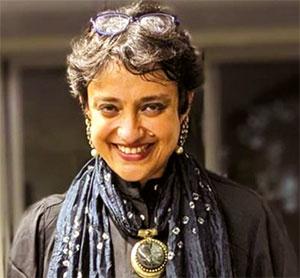

Landscapes suffer because we do not learn from extreme events, the author of ‘Marginlands’ tells Down To Earth



Down To Earth spoke to Arati Kumar-Rao about a host of issues, including traditional knowledge, mentioned in her book, Marginlands: Indian landscapes on the brink. Edited excerpts:
Shagun (S): You travelled and spent time in varied topographies — from sand dunes of Thar, river banks of Punjab, mountains of Arunachal Pradesh, to the floodplains of Assam, the Sundarbans and the coasts of Kerala and Goa, with different habitats, narrating different stories of communities there. What was the common thread in your travels?
Arati Kumar-Rao (AKR): The kindness of strangers and a fast eroding the knowledge of the land, I’d have to say, were common to all the places I’ve worked in.
S: Marginlands emphasises on traditional wisdom of land. To what extent has this wisdom been considered in formulating development plans?
AKR: There is a tendency, across governments and over time, to disregard local knowledge systems and traditional practices. This has brought us to a painful place. With local knowledge, people were well adapted to the rhythms of nature. By cutting that connection and adopting a “one size fits all” mentality, we have done ourselves a disservice. No wonder, a city like Bengaluru, which gets more than twice the water it needs in the form of rain, still suffers from shortage—while Jaisalmer district, with limited rainfall annually, has its wells full.
S: The coastal areas appear to suffer due to a cocktail of climate change and bad decisions. The book mentions how a lucrative fishing industry was wiped out along the stretch of the Ganga in Uttar Pradesh and Bihar because of the Farakka barrage. Do you think some lessons have been missed?
The very fact that more of the same (projects) is being done across the country—Arunachal Pradesh recently signed 13 agreements for hydropower dams—shows that we have not learned from the lessons nature is teaching us by way of landslides and floods. These events are symptoms of the real malaise, which is the people’s mindset. By addressing only the symptoms, how can we stem the rot?
S: Even when projects are initiated as solutions, the perspective is skewed and they do more harm than good. How can landscapes and community livelihoods be preserved?
AKR: We need to step back and not look at problems in a piecemeal manner. What we do at the head of a delta may affect places 800 km upstream and 400 km downstream. We need to look at the whole system, break the silos between departments, and work not for short-term gains, but for long-term resilience.
S: While recording the lived realities of the most marginalised people, did you get a sense that these narratives were untouched before either by different government departments or the mainstream media? Coverage of the impact of climate change on different sections of the
population is event based at best in mainstream media.
AKR: Yes, event-based reporting does the problems a huge disservice. These events — floods, droughts, landslides … they are symptoms of the malaise. The malaise is in the thinking. By shining spotlights only on the symptoms, and band-aiding them, how can we stem the rot?
S: Lastly, you mention that you and your sister grew up walking, cycling and riding buses. You also talk about discussions you had with your father on renewable energy sources in the 80s. How much of your childhood contributed in the ways you started to see these issues and in your decision to quit a corporate life?
AKR: Indeed … I am who I am as an accretion of all my experiences. Those formative years laid the foundation for my thinking and belief systems. I thank my parents for that. It has been a huge factor in the work I do today and in shaping my sensibilities. Moreover, I realise that people like Wendell Berry and Rachel Carson and my father have had the right ideas for decades. It’s just that those voices of caution and sense are drowned out in the race for short-
term profits and shiny badges of “growth.”
I always find this 1949 quote of Aldo Leopold so prescient: “Civilization has so cluttered that elemental man-Earth relationship with gadgets and middlemen, that the awareness of it is growing dim. We imagine Industry is what supports us, forgetting what supports Industry.”
This was first published in the 16-30 September, 2023 print edition of Down To Earth
We are a voice to you; you have been a support to us. Together we build journalism that is independent, credible and fearless. You can further help us by making a donation. This will mean a lot for our ability to bring you news, perspectives and analysis from the ground so that we can make change together.

Comments are moderated and will be published only after the site moderator’s approval. Please use a genuine email ID and provide your name. Selected comments may also be used in the ‘Letters’ section of the Down To Earth print edition.